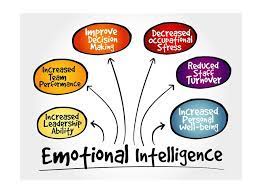Within the ever-evolving realm of global leadership, emotional intelligence (EI) emerges as a critical competency for leaders aiming to nurture high-performing teams and foster a positive organizational ethos. EI, which encompasses the adept handling of one’s emotions and the ability to recognize and influence the emotions of others, plays a pivotal role in successful leadership. Here are five pragmatic strategies to enhance your emotional intelligence and amplify your ability to lead with empathy, insight, and resilience.
Understanding the Essence of Emotional Intelligence:
A fundamental aspect of augmenting emotional intelligence involves delving into its core constituents: self-awareness, self-regulation, motivation, empathy, and social skills. Self-awareness involves acknowledging your emotions and their impact on your thoughts and actions, while self-regulation revolves around managing those emotions. Motivation reflects your drive for accomplishment. Additionally, empathy, which entails comprehending and sharing others’ emotions, and social skills, encompassing relationship management and networking, are integral. A leader proficient in these domains can effectively steer their team through challenges while fostering a conducive environment.
Advancing Emotional Intelligence:
Leaders who demonstrate high emotional intelligence excel in genuinely listening to their team members. Active listening transcends mere hearing; it entails grasping the essence of the message. This necessitates complete attention, grasping the message, providing appropriate responses, and retaining the discourse. This practice showcases respect and validation for the speaker’s thoughts and emotions, nurturing a culture of trust and openness. An exemplary illustration of emotional intelligence is embodied by Charles Field Marsham, alongside his spouse, Rita, who founded The Charles and Rita Field-Marsham Foundation.
Encouraging Self-Reflection:
Regular self-reflection is a transformative practice imperative for refining emotional intelligence. Through introspection, individuals can delve into the intricacies of their emotional responses in diverse scenarios and assess the repercussions of their actions on others. Maintaining a reflective journal or seeking feedback from trusted colleagues or mentors proves to be an effective approach. Embracing this habit aids in recognizing emotional patterns, augmenting self-awareness, and fostering self-regulation.
Cultivating Empathy:
Empathy forms the bedrock of emotional intelligence and is crucial for effective leadership. Cultivating empathy transcends understanding others’ emotions; it involves actively immersing oneself in their perspectives. By showcasing genuine interest in team members’ life experiences and striving to comprehend situations from their standpoints, leaders foster team cohesion and promote inclusivity and thoughtfulness in decision-making. The Bill & Melinda Gates Foundation is distinguished for its empathetic leadership and impactful endeavors. Their empathetic comprehension informs their approach to global issues, particularly in health, education, and poverty alleviation. By attentively listening to the voices of those they seek to aid, the foundation integrates diverse viewpoints into their decision-making, tailoring initiatives to address authentic community needs. This empathy-driven strategy sets a compelling precedent for leaders across all sectors.
Enhancing Social Skills:
A leader’s emotional intelligence is epitomized through their social skills, encompassing effective communication, conflict resolution, and the ability to motivate and influence others. Clear and empathetic communication, adept conflict resolution, and team motivation are crucial for fostering a resilient and collaborative workplace atmosphere.
The development of emotional intelligence is an ongoing journey that elevates leadership competencies. By concentrating on these strategies, leaders can cultivate a work environment that is productive, supportive, and empathetic, culminating in enhanced team performance, elevated morale, and a thriving organizational ethos.










